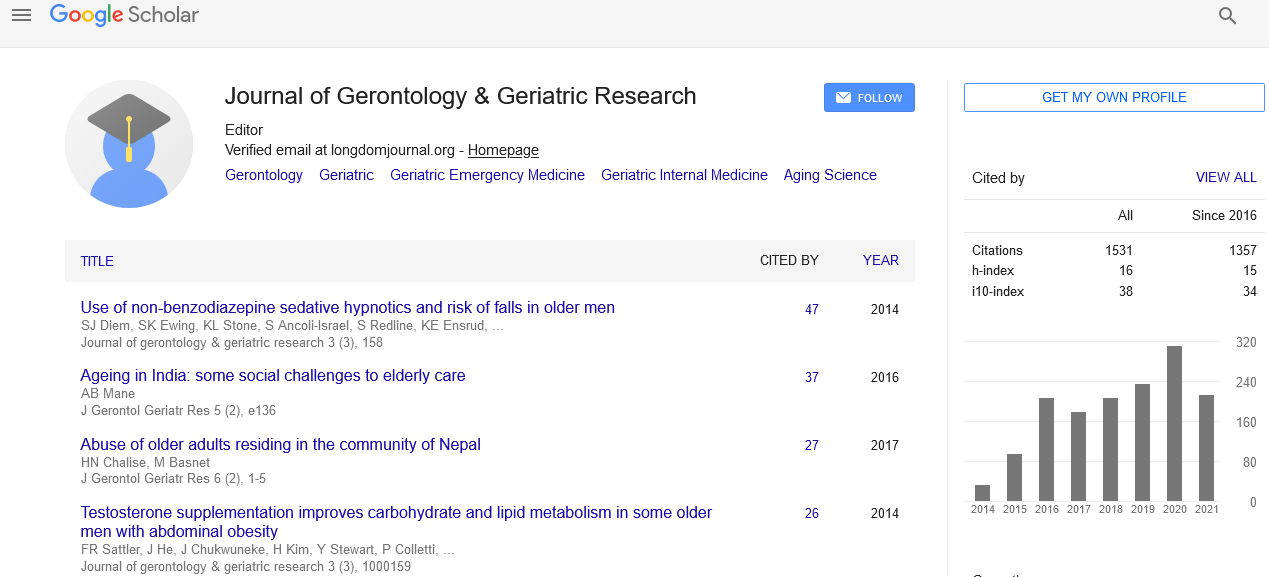PMC/PubMed Indexed Articles
Indexed In
- Open J Gate
- Genamics JournalSeek
- SafetyLit
- RefSeek
- Hamdard University
- EBSCO A-Z
- OCLC- WorldCat
- Publons
- Geneva Foundation for Medical Education and Research
- Euro Pub
- Google Scholar
Useful Links
Share This Page
Journal Flyer

Open Access Journals
- Agri and Aquaculture
- Biochemistry
- Bioinformatics & Systems Biology
- Business & Management
- Chemistry
- Clinical Sciences
- Engineering
- Food & Nutrition
- General Science
- Genetics & Molecular Biology
- Immunology & Microbiology
- Medical Sciences
- Neuroscience & Psychology
- Nursing & Health Care
- Pharmaceutical Sciences
The aging brain
2nd International Conference on Geriatrics & Gerontology
August 24-26, 2015 Toronto, Canada
Sangeeta james
Jazan University, KSA
Posters-Accepted Abstracts: J Gerontol Geriat Res
Abstract:
About 500 million people worldwide were at least 65 years old by 2006, according to the National Institute on Aging; that is 12 percent of the world�??s population and by 2030 this figure is expected to climb to 20 percent. Aging is inevitable as a person gets older changes occurs in all parts of the body including the brain. These changes in the brain occur as structural changes, chemical changes and neuropsychological changes. Certain part of the brain shrinks especially the prefrontal cortex and hippocampus both areas are important to learning, memory, planning and other complex activities. Changes in neurons and neurotransmitters affect communication between neurons. In certain brain regions, communication between neurons can reduced because white matter is degraded and lost. Changes in the brain�??s blood vessels occur. Blood flow can be reduced because arteries narrows and less growth of new capillaries occurs. Many other changes take place in the brain during aging; these changes may cause mild cognitive impairment, Alzheimer�??s disease, cerebrovascular disease and Parkinson�??s disease. The developmental trajectory of the brain through the entire life is affected by genetic, physical and psychological factors. As we age, our brain constantly recognize in response to new experiences. Even after adverse physical or psychological events such as a stroke or a loved one�??s sudden death there is an astonishing level of flexibility in the brain that enables an individual to compensate and adjust. Reaching a better understanding of aging and disease prevention strategies is critically important for maintaining brain health.


